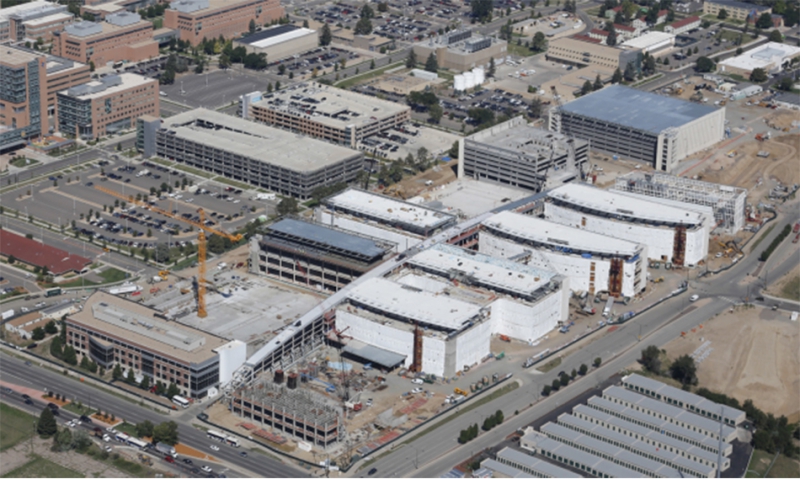
Roscoe Butler shares Legion's perspective on Department of Veterans Affairs construction issues with House Committee on Veterans Affairs.
At a Jan. 21 House Committee on Veterans Affairs hearing, The American Legion noted that the Department of Veterans Affairs has had three secretaries since planning began for its hospital project in Aurora, Colo. Six hundred million dollars later, Colorado veterans are still waiting.
“Not only are the failures of VA construction hurting the veterans of Colorado, systemic VA problems with communication, transparency and accountability threatens VA operations nationwide," Roscoe Butler, the Legion's deputy director for health, told the committee. "The veterans of America deserve better.”
Butler, a member of the Legion's Veterans Affairs & Rehabilitation Division, presented the Legion’s testimony at a hearing before the committee. Butler said that the Colorado hospital is one of four VA construction projects that have average cost overruns of $366 million and average delays of 35 months, according to the Government Accountability Office; the other projects are in Las Vegas, New Orleans and Orlando, Fla.
“Frankly, this is unacceptable,” Butler said. “Other agencies and private-sector organizations continue to build major projects across the nation, yet VA’s replacement hospital on the Fitzsimons campus (in Colorado) continues to be delayed.”
Ralph Bozella, chairman of The American Legion’s Veterans Affairs & Rehabilitation Commission, voiced the Legion’s concerns about construction delays in Colorado at an April 2014 field hearing in Denver held by HVAC’s Subcommittee on Oversight & Investigations. He testified that mistakes and mismanagement are crippling VA construction projects “and nobody seems to be held accountable.”
Even when VA completes a major construction project (the Las Vegas hospital was completed in August 2012), the Legion stated “the projects can hardly be considered flawless success stories.” The Las Vegas facility’s emergency room, it turned out, was too small and lacked a drop-off ramp for ambulances; the deficiencies cost $16 million to fix.
VA’s own Office of Inspector General reported in October 2013 the department’s construction efforts were characterized by “lack of guidance, inaccurate milestones, lack of documentation and lack of central tracking.”
The American Legion testified that it met with VA construction officials and came away with the belief that “VA needs to seriously examine how (it) manages major construction projects, and that reform is needed in this process.”
Last December, the Kiewit-Turner construction group ceased working on the Colorado hospital after a federal appeals board ruled that VA breached its contract – by failing to deliver a facility design that could be built within budget. Workers returned to the jobsite two weeks later, after VA agreed to call in the U.S. Army Corps of Engineers for assistance.That move fell in line with a Legion resolution passed in May 2014, calling on Congress and VA to consider “all available options” (including the Corps of Engineers) “to ensure major construction programs are completed on time and within budget.”
The Legion testified that, based on its own annual VA hospital evaluations, “when veterans can access these health-care facilities, they receive an excellent level of care and, in many cases, superior to what they could receive outside the (Veterans Health Administration) system. But veterans can’t access that care if VA can’t get the facilities built.”
To read Butler’s written testimony, click here.
- Legislative

